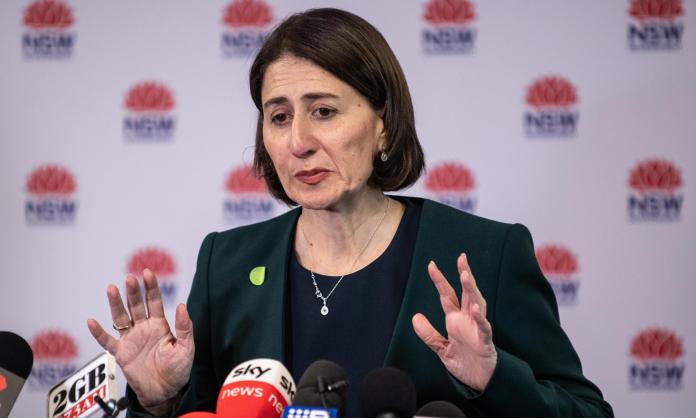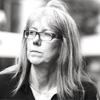There’s a renewed outbreak of COVID-19 in New South Wales, initially centred on the Northern Beaches region of Sydney but now spreading throughout the city and the state in ways that are all too familiar. State health authorities identified a total of 38 cases linked to the Northern Beaches cluster by 19 December, with a further 30 identified the next day.
On 16 December, an airport van driver tested positive for the virus. Although not thought to be the source of the Northern Beaches outbreak, genomic testing (which identified the strain of virus as one originating from the US) and the nature of the man’s job (driving international and other aircrew to and from Sydney Airport) suggests the most common source of the virus in Australia since its virtual elimination in the community is poor management of international arrivals.
The previous known case of local transmission in New South Wales involved a hotel worker at a Sydney quarantine hotel who tested positive for the virus on 2 December. This case was also traced to flight crew, in another quarantine facility run on the cheap. So far though, the exact source of the current outbreak has not been identified.
It took three days before the state government put even a partial lockdown in place, covering only the Northern Beaches local government area. Ridiculously, it only applies for about four days, from 5pm on Saturday 19 December until midnight Wednesday 23 December. During this time, hospitality venues and function centres (with the exception of takeaways), gyms and places of worship will have to close. All residents of the area are required to stay at home, unless for essential shopping, exercise and medical care. People are not permitted to enter the area unless for one of these reasons. But no-one has to wear a mask, and work continues as normal.
The inadequacy of the government’s response is demonstrated by the fact that by Sunday 20 December people with the virus had visited venues all over Sydney, from Cronulla in the south, Penrith in the west, many inner-city venues, and places far beyond Sydney, from Newcastle and Forster in New South Wales, to southern Queensland.
The government’s complacency is due to its laissez-faire, profit-driven approach. This is the same government that announced in November that it would give every adult $100 in vouchers to use on food and entertainment—a key measure of the state budget aimed at encouraging people to reopen their wallets after demand for goods and services fell more in NSW than in any other state during the pandemic. Today’s crying about not wanting a total immediate lockdown to ruin Christmas is a cover for wanting to keep the cash registers ringing during this lucrative retail and hospitality season.
As I wrote in Red Flag in September about ruling class hostility to the Victorian lockdown: “this is about getting business running and profits flowing, whatever the cost to public health. [This is Scott Morrison’s] supposed “gold standard” of disease management set by the Liberal government in New South Wales, where most businesses have remained open. Never mind that medical experts from the ABC’s Dr Norman Swan to infectious disease expert Professor Raina MacIntyre attribute that state’s low case numbers (so far) to good luck that could quickly end, while others, such as health economist Professor Stephen Duckett, are calling for New South Wales to adopt tighter restrictions to safeguard public health. Medical opinion, it seems, comes second to profits.”
There should be an immediate lockdown across the whole of New South Wales. All places where the virus can readily spread, including all indoor non-essential venues like gyms, hairdressers, restaurants and bars, must be closed. All workers who can should be told to work from home and their workplaces closed. Aircrew need to be properly quarantined, and jobs in the quarantine hotels need to be made permanent and properly paid. Masks should be mandatory, not a vague recommendation, including in every workplace. JobSeeker and JobKeeper payments should be restored to their previous levels, and paid pandemic leave made available to anyone who needs it while awaiting test results, quarantining, or unable to work because they have the virus.
But instead of the measures outlined above, all of which cost money, the government prefers to rely on luck, which is free.
Testing rates are far too low, and not because people are avoiding getting tested but because testing costs money. Many thousands of socially-responsible people have waited up to seven hours at overstretched testing centres, only to have them close before they can get to the front of the queue. The Berejiklian government, in classic capitalist short-sighted mode, closed down many testing centres once community transmission reached low levels, and then instead of immediately reopening them as soon as these new cases were detected, decided to wait and see before spending money.
Meanwhile, the virus spreads.
What is not in short supply is an orgy of hypocritical blaming of individuals. While the government refuses to make mask wearing compulsory, Premier Gladys Berejiklian is happy to scapegoat individuals for not wearing them. Yet when Sydney bus and train unionists demanded to make masks mandatory on public transport in late August, she refused.
Berejiklian has also scapegoated “disobedient” aircrews who broke quarantine for a night out—which is definitely anti-social behaviour—yet when the premier herself took a COVID-19 test on 17 November she continued to meet people in her office while she should have been isolating.
The quarantining of international airline crews is another case where economics trumps health considerations. A United Airlines crew member who arrived in Sydney with COVID-like symptoms on 14 December was released from hotel quarantine within 24 hours to fly home to the US after lobbying by an airline executive, despite NSW Health quarantine teams wanting to retain her for a second test.
As the outbreak has gathered pace it has now come to light that currently the 2-3,000 aircrew that arrive in Sydney per week are allowed to stay at 25 or 26 different hotels of an airline’s choosing that are not subject to supervision. As industry expert Brian Wilson told the Sydney Morning Herald on 19 December, there has been widespread flouting of rules by all airlines since the start of the pandemic. “Like in all parts of civil aviation, self-regulation doesn’t work.” But it is what business wants. We need to put public health before the profits of Qantas and the other airline bosses.
The government has so far refused to extend any lockdown beyond the Northern Beaches. For Greater Sydney the only changes have been pathetic—caps on home gatherings of 10 people in addition to however many live there, plus indoor venues must now revert to allowing four square metres per person rule instead of the current two—but they can still have up to 300 people!
Yet while the New South Wales government may be unwilling to act, there are plenty of signs that ordinary people are not so backward. Not only did thousands of Sydneysiders show their social solidarity by queueing for hours for tests, within a day there were media reports of mass cancellations of restaurant bookings and nights out, and anecdotal reports of parties being cancelled. Major hospitality areas like King Street in Newtown are far quieter than normal.
People know that lockdowns work. We’ve seen it work in Victoria. And we’ve also seen how a massive disaster and unnecessary deaths and illness can unfold by waiting to prioritise businesses’ profits.









